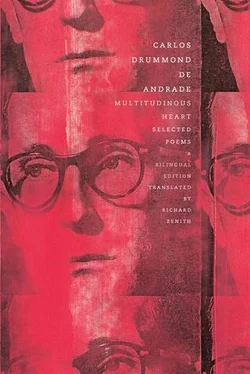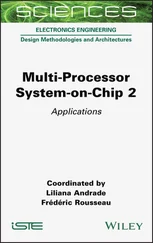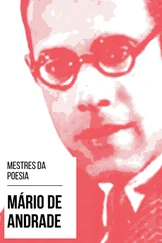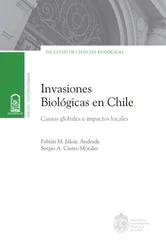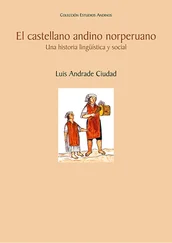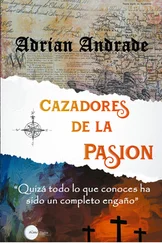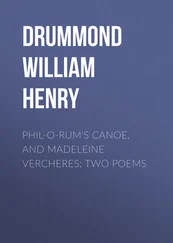The opening salvo of “Eternal,” published in the same collection as “Elegy,” seems to accurately speak for the poet himself: “And how boring, after all, it is to be modern. / Now I’ll be eternal.” As it happens, this poem’s language and versification are modern rather than classical, but they are not ideologically, dogmatically modern. What Drummond wanted, at this point in his journey, was the freedom to write in all styles, without having to push a program. He also insisted on the right to be eternal, or to pretend he was eternal, even if he did not believe in God. One of Drummond’s favorite authors, whom he read more closely as he grew older, was Søren Kierkegaard, Denmark’s great doubter who chose to believe. Brazil’s great poet — a confessed agnostic — chose life itself, life on earth, without forgetting how it ends. “It will be grim, yielding, bleak,” he wrote in “The Last Days.” But “Eternal” reads like a giddy, irreverent capriccio. Using Machado de Assis to make fun of Pascal, it is one of Drummond’s most playful poems. It ends, however, with this solemn prayer: “that the urgent need to be eternal bob like a sponge in the chaos, / creating a rhythm / between oceans of nothing.” The last two cited verses are a perfect description of what Carlos Drummond spent his poetic life doing. He practiced what he prayed.
* * *
Besides writing poetry, Drummond had always published occasional criticism, commentary, and short stories in newspapers, and in the 1950s he began a long career as a columnist, producing hundreds of often witty crônicas about all sorts of real and unreal people and events. The crônica is an open format that gives the columnist virtually free rein. The poet and journalist also translated some novels (by Laclos, Balzac, Proust, and others), plays (Molière and García Lorca), and a scattering of poems from various languages. Although his own poetry showed signs of fatigue, it remained his privileged vehicle for making sense of the world, it did not lapse into repetition, and the best of his new poems ranked with his vintage work. He reached the heights less often than he used to, but he still reached them.
The chronically out-of-place figure cut by Drummond’s stubbornly pensive, self-conscious I was a central motif for as long as he wrote, but his perspective on that figure kept changing. Like a shifting camera, his poetry captures the I out of sync with life’s random events (“Porcelain”), out of sync with his lovers (“Destruction”) and with love itself (“The Infernal Powers”), out of sync with his strangely godlike consciousness (“The Misinformed God”), out of sync with his age (“Declaration in Court”), with his physical body (“The Body’s Contradictions”), with the natural world (“Unity”), and out of sync with his own personal history (“The House of Lost Time”). Drummond’s poems are an ongoing series of musical protests, twisted hymns, celebrations of imperfection. In a harmonious world there would be no place for poetry as he knew it and made it.
Between 1968 and 1979, Drummond published three volumes of poems under the general title Oxtime. They form an unstructured memoir of his years growing up and going to school in Minas Gerais. Without pretending to be high poetry, these simple stories couched in verses succeed — like cinema — in transporting us to the places and times they portray. It would be hard to imagine a more effective autobiography. But the evoked experiences are at the same time exemplary. They are part of Drummond’s larger project of considering what makes a human human, and how one human fits in with other humans and with his or her surroundings. Acutely aware of how people and things very often don’t fit, as if incompatibility were the general rule, he was also attentive to life’s brief moments of perfect agreement, love, which his poetry made a point of recording and even of creating. A cross-dressing woman in the Itabira of his boyhood really existed, according to one of Drummond’s interviews, but it was only in the poem “Woman Dressed as a Man” that he, a small and frustrated “boy-man,” walked hand in hand with her, a frustrated “woman-man,” parading through the town, in the middle of the night, their mutual “discontent with the malformed world.”
In the world according to Drummond, everyone is ultimately a misfit, and this shared condition becomes a basis for communion — with family members, with friends or lovers, or with perfect strangers. On rare occasions they find each other; they always keep looking and hoping. It is not the will to live but the will to love that motivates the heroic I and the other characters who inhabit these poems.
ABOUT THIS SELECTION
In 1962 Carlos Drummond published Antologia poética, a personal anthology of poems from his first ten books, divided into nine thematic categories: (1) The Individual, (2) Minas Gerais, (3) Family, (4) Friends, (5) Social Confrontation, (6) Experience of Love, (7) Poetry Itself, (8) Playful Exercises, and (9) An Attempt to Understand Existence. Even if it is true, as Drummond claimed, that he was more concerned to present a balanced, overall view of his work than to single out the best poems, the anthology has a high concentration of his finest work and was the natural starting point for my selection. Fifty-four of the eighty poems in Multitudinous Heart can be found in the Antologia poética.
The rural interior where Drummond grew up features in a number of my translations, but I have given short shrift to poems specifically about Minas Gerais, nor have I included poems addressed to other writers or to friends. Likewise missing are the poet’s “playful exercises,” which usually turn on some particularity of Portuguese that cannot be adequately translated. Drummond used graphic and word games inspired by the concrete poetry movement for a few poems included in his Lesson of Things (1962), but it was a lesson he soon abandoned. Erotic poetry is yet another facet of Drummond not represented here. During his last ten years he wrote a series of mostly rhyming, mildly erotic poems, which he only allowed to be published posthumously ( Amor natural, 1992). I mention these exclusions not by way of apology but to make the point that Drummond’s poetic oeuvre is even wider in scope than the considerable diversity in my selection indicates.
Carlos Drummond’s first translator into English was John Nist, but the first translations to make his work noticed and admired in English were done by Elizabeth Bishop (seven poems) and Mark Strand (many more). The generally excellent volume of Drummond’s work titled Travelling in the Family: Selected Poems (Random House, 1986) included all of Bishop’s and most of Strand’s translations, many others by Thomas Colchie (who also wrote the Introduction), and one by Gregory Rabassa. The result was a choice offering of forty-one poems. To avoid redundancy and to make more of Drummond available in English, I varied my selection, doing new translations only for fifteen of the poems in Travelling that seemed to me essential.
The Portuguese source text is based on the (partial) critical edition published in 2012 and on the carefully prepared readers’ editions that Companhia das Letras began publishing that same year. Companhia kindly provided me with digital copies in Portuguese for most of the poems included in this selection.
*All syllables up to and including the last accented syllable in a line, with the additional proviso that contiguous vowels, whether in the same word or adjoining words, can merge and be counted as one vowel.
ALGUMA POESIA / SOME POETRY (1930)
Читать дальше
